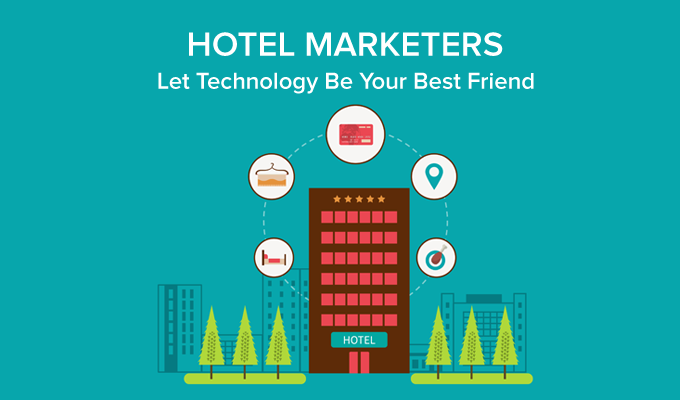
If there’s one thing one whole year of selling hospitality technology taught me, it is this – even the smartest and the most intuitive of hotel owners tread way too cautiously when it comes to adopting technology.
Yes, that isn’t always the case! There are many in the hospitality sector that are doing a great job digitally. But for every hotel owner who leads the way, there are 10 highly skeptical ones, trying to delay the change for as long as they can.
Consider this sales conversation I had with a hotelier.
The conversation was going great – I had introduced the product and he seemed interested. But he suddenly stops me mid-way – “Can you tell me how many people use this software?”
I listed some of our very reputed customers.
“No, in this city. Give me names.”
Taken slightly aback (that was my 5th day at work), I politely say that since we are new to the market, these are the few clients I can list. That’s it. That’s where the conversation dropped. He wanted assurance that he was going to tread tried and tested waters. It’s a perfectly reasonable expectation, but sometimes such resistance is what hold businesses back from doing really well.
Another anecdote, where the problem gets a little clearer.
After a lot of convincing and back & forths, I had managed to close a deal – the demo was given to their marketing manager, who had asked for one last meeting, with the owner.
I was gleaming with excitement when I was asked, “So what is this actually, just another OTA, right? How many rooms can you promise me?” I could feel my excitement seep out like air from a deflated balloon. To be fair, the marketing manager was quick to jump to my rescue, and the deal went through. But, you see the problem, don’t you?
He had just signed on because of the phrase ‘increase your bookings’ When he came to know what exactly he had bought- a marketing software that would help increase the bookings as well, albeit in a different way, he suddenly wasn’t that interested anymore.
I can relate many more harrowing anecdotes. But let’s just stop right here, and drive the point home. Many hoteliers are still hesitant to adopt technology. Even when their target audience is not only tech-savvy but almost tech-dependent. Be it for transport, daily dosage of news, ordering groceries, clothes or whatnot, they reach out for their phones.
And, hospitality as a sector is fast moving in this direction as well. The Accor group of hotels has invested a whopping €225 million in technology. That cannot be without reason, can it?
Why hotel marketers need hotel marketing technology by their side
Now, like any business that wants to succeed, hotels have to sell, i.e. fill their rooms. Why not let technology aid you in getting there? The struggle for those just starting out can be where to begin with hotel marketing. And, that’s what I am here to help in.
Understanding the traveler’s buying cycle
Let’s follow your customer through his buying cycle to make it easier. Any prospective traveler (your typical customer), be it business or leisure, luxury or budget, would typically go through these stages:
- Planning (till they buy)
- The actual experience (while they buy)
- After-taste (after they have checked out).
Understanding the mindset of the traveler in each of these stages is very important for all you hoteliers. Let’s see how technology aids us in this.
While the traveler is planning….
In today’s day and age, unplanned travel is a thing of the past. A small minority of the travel population decide to pack their bags and ‘wing it’. But the majority out there plan their travel for days and weeks, if not months.
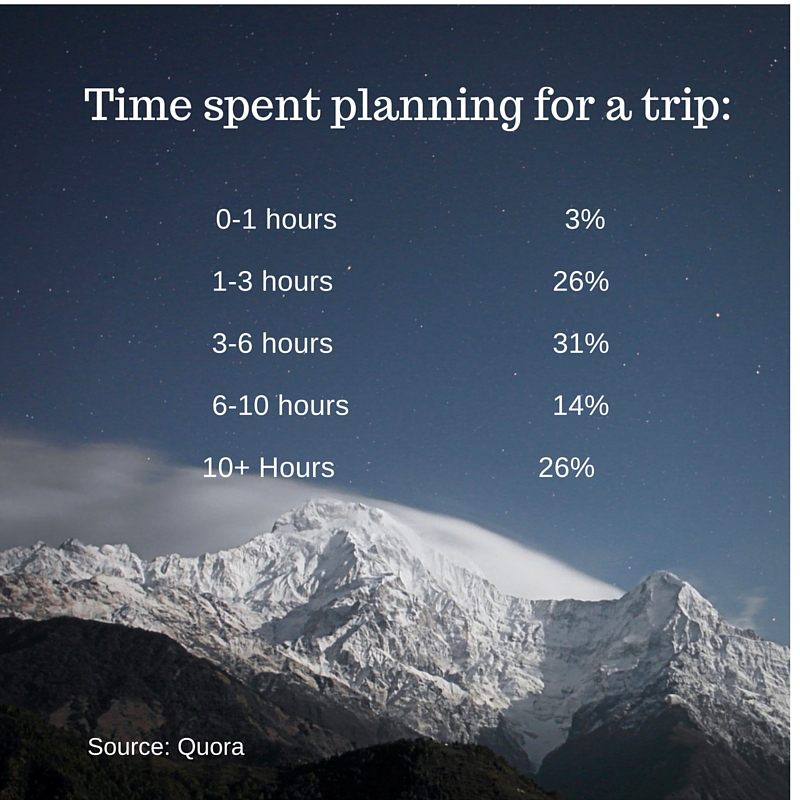
Hence making yourself visible during this stage is imperative. So how do you do this?
Now a leisure traveler will have a hard time making up his mind. There are many things to consider before he makes any decision. For example,
- Where? domestic or international?
- When? Season- spring, summer, or winter?
- For how long? Duration of the trip- two days, a week or a month?
- Number of people on the trip – solo or with family or with friends or a romantic getaway?
- How? – Mode of transport
- How much? – Cost
If you help him make a decision in this confusing stage, there’s a high probability that he’ll remember you.
Answer his initial queries
Write articles like ‘Best places to travel alone’, or ‘10 best places to see in South India’ – they are informative, and have a high share-ability quotient.
(You can get more travel and hotel content ideas here.)
Eventually your potential buyer is going to make a decision and zero in on one location.
He will now actively look for hotels and any packages that he might avail. Now use technology to give your hotel an edge.
If the traveler has decided that he is going to visit Bali this June, then the first thing he would do is Google “Best tour packages for Bali”. Use this to your advantage. There are certain standard things that you can do.
Be visible when he searches:
This would mean Google Search Ads. They will help you get in front of the traveler when he is searching online. Run Targeted Ads that will ensure visibility when a prospect uses those specific search terms.
(Additional Resources: Learn how to run a great Google Adwords campaign.)
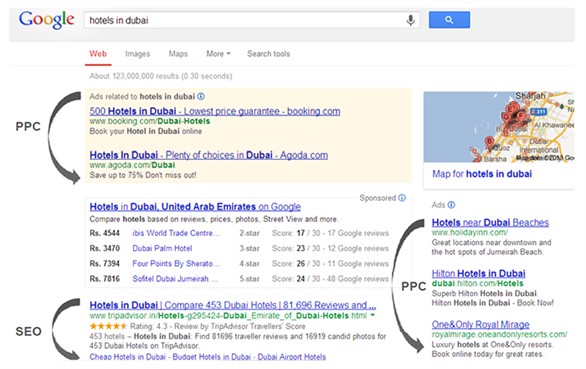
Reinforce when they plan to make a decision:
Now, if the traveler has already read your article (visited your website), during the first stage, you can get them back to your website to actually buy the package using re-marketing campaigns – AdWords and Facebook both.
Be Consistent across channels:
Also, make sure that the data you provide across various platforms are the same. If your TripAdvisor page says “Bed and Breakfast with free WiFi”, your Agoda page should not say “Luxury hotel”. Consistency helps your prospect easily identify you, and increases trust among the people you are trying to reach.
Pin yourself on the map:
People search for things on the go. It has become a norm for hotels to pin their locations on the map. Especially in the case of hotels located in destination spots, having your hotel etched on the graph could only do you good. Even more so when the trip is unplanned or impromptu, travelers (Business especially) look into maps to get an idea of hotels near them. It will also help travelers determine how far/close you are to tourist attractions in the region.
So how to do this? Simply register yourself with Google’s My Business help. You can verify your business and add one or more locations that point to your hotel(s). if you meet Google’s guidelines, and they have established that your business is authentic, Voila, your location would be pinned.
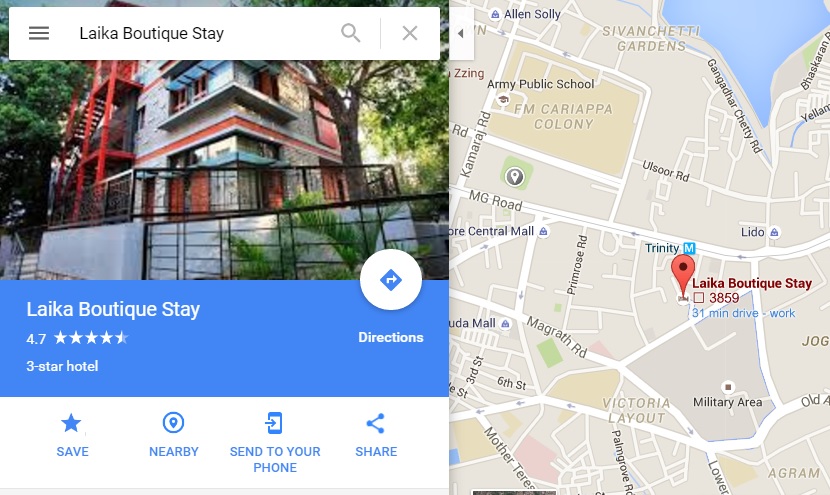
Invest in your brand.com:
Though most hotels have a listing in some OTA or the other, they fail to realize the importance of their own website to drive traffic. Your website would be your personal space, kind of like your digital hotel, that you are the sole owner of. If the website is not well designed, has a long load-time and has low quality images; chances are, you might lose out on the prospect visiting your website.
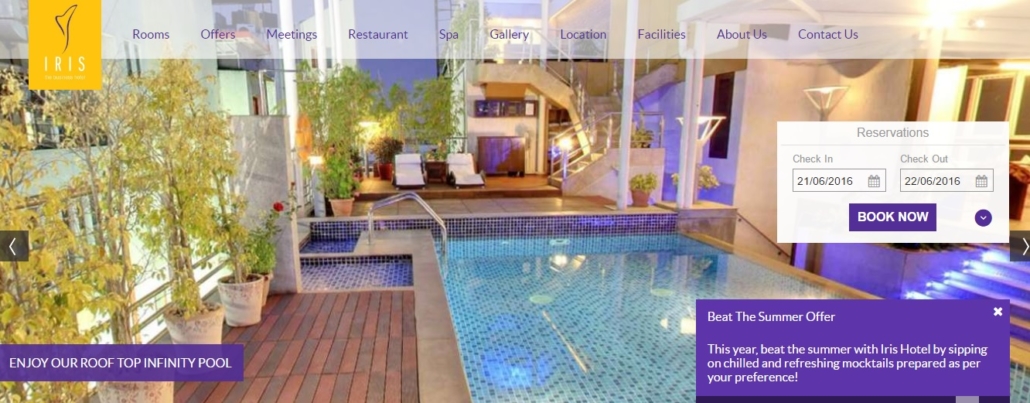
But if you make the website easily navigable and user friendly like the Iris Hotel in Bangalore, you’d be cashing in on the traffic that lands directly on your website as well. Moreover, they run unique offers on their website that cannot be duplicated.
Make friends with the mobile:
The importance of being mobile-friendly cannot be emphasized enough. In fact, some people say that their phones are the number one item that they bring on their trip. One look at the Statistics below would reinforce this fact.
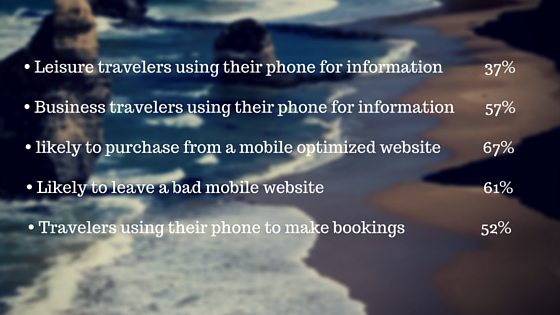
That’s a huge percentage of the market right there. Hence, having a mobile friendly website and investing in a good mobile presence is essential.
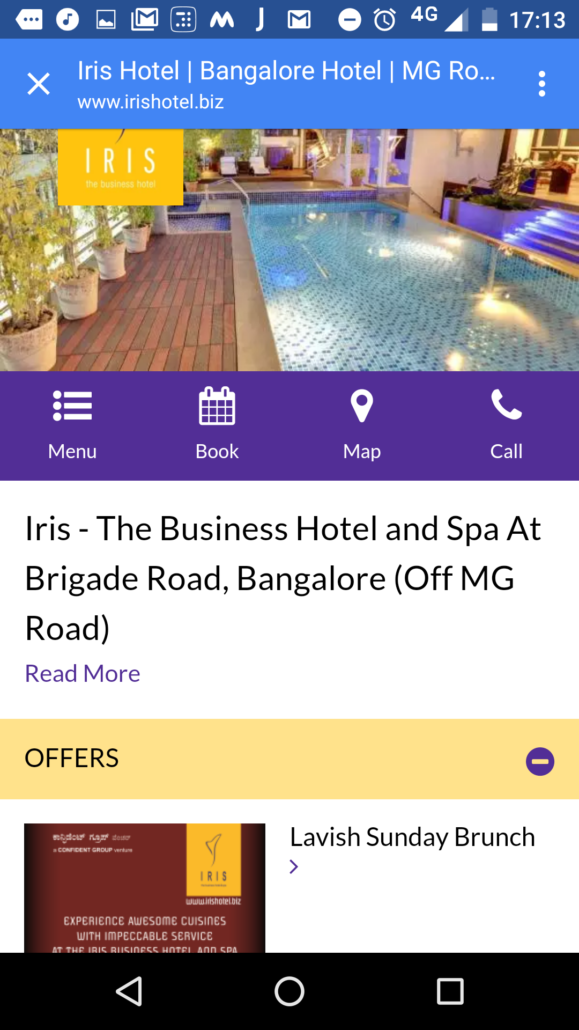
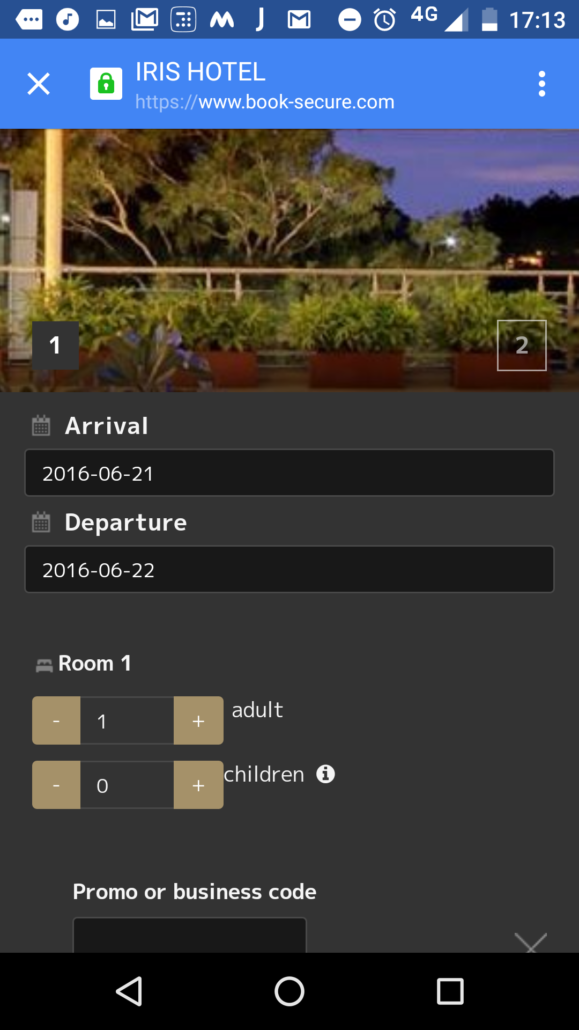
Be more social:
The Marriott group of hotels is one brand that is doing social media the right way. With over 2M fans on Facebook, 230k followers on Twitter and 136K on Instagram, their news feed is a treat to the eyes –from their lavish rooms to the exotic food they offer, everything is promoted the right way. The fact that they publish posts of public interest instead of mundane sales and marketing posts, is what makes them superstars. As in the picture below, they try and give a more human feel to the company, that allows their social media followers to relate with. They have recently joined snapchat, too.
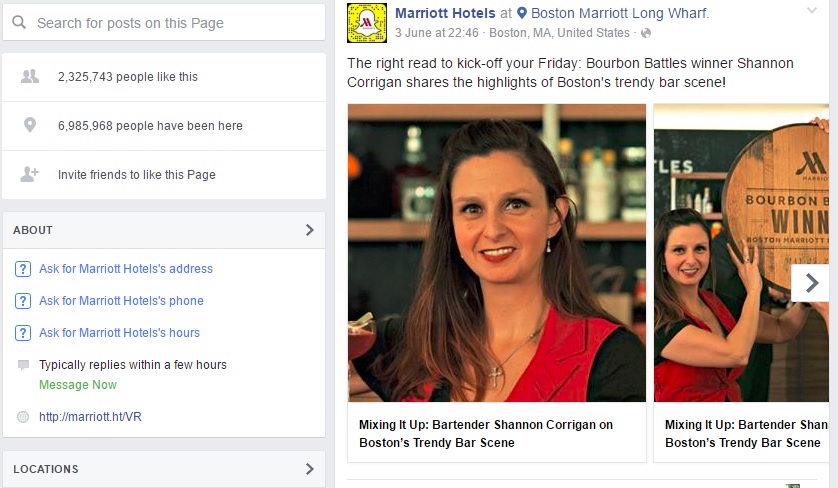
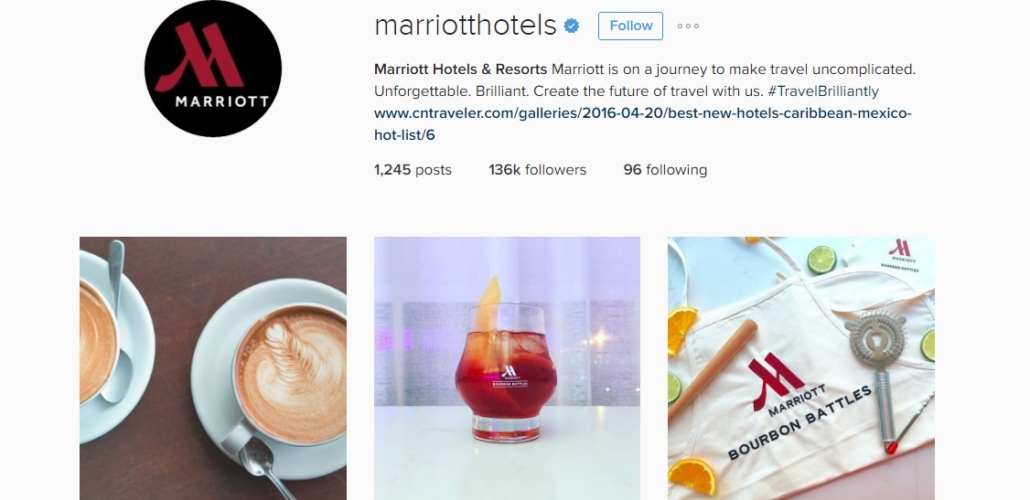
You may think that this is easy for a huge company like Marriott with huge marketing budgets. But that is not the case. Simply by executing the right tactics, this can be done successfully with smaller budgets too. Try asking your past customers to share an amazing experience they had at their property. Or run contests that might drive traffic. Urge your visitors to check their social profiles. Or have a selfie booth in your lobby. Small ideas like these can increase your visibility much more.
The Marriott also devised a kick-ass rewards program. Simply by liking, checking in, sharing photos and tweeting about the hotel during their stay, would make them eligible for reward points. These points can then be exchanged for gift cards.
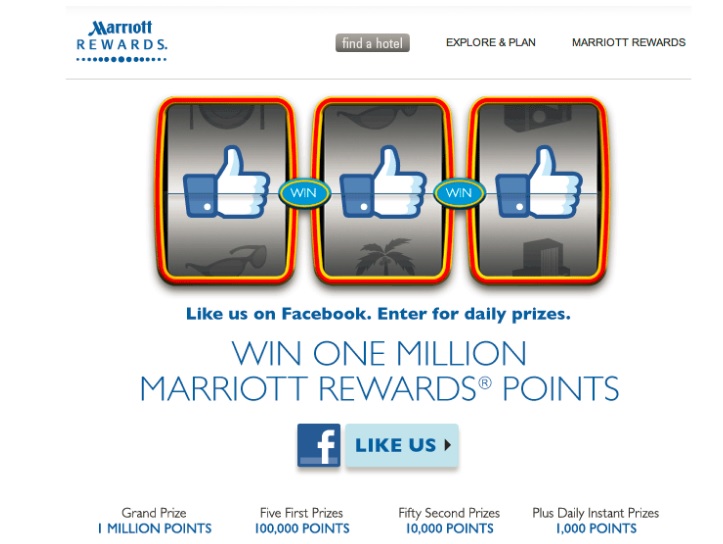
Learn how to leverage social media for travel and hospitality business with this infographic
When they come calling…
No, this part does not only include the time that they actually visit your property. It starts from the time they decide that you are the one who is going to be a part of their experience.
After they choose you:
Say your prospect has made the decision to stay at your property. There are still things that may go wrong, which could either change his mind or keep him from returning to your property.
Make it easy to book:
Don’t make booking a room a pain for them. If they have to wait 5 mins for your booking page to load, they would leave midway and change their mind. Heck, why blame them? Wouldn’t you do the same? Or what if your form was two pages long, asking for mundane details like their hometown? Again, bid adieu to your lead.

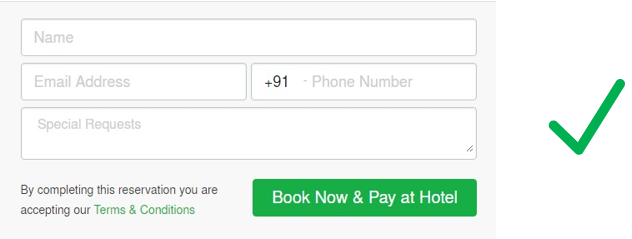
Make sure the message matches:
When you run offers or packages on your website, make sure that they are easily view-able and accessible to your lead. Also, they should lead to the right page that the visitor wishes to see. When he clicks on a link that says ‘Book two nights and get the third night free’, he shouldn’t be directed to a page that says ‘Get spa discount’.
When they visit:
Now that they have booked their stay, now comes the actual visit. Again the most common things that can put them off are:
Avoid overbooking your inventory:
A huge problem that Hoteliers face is the distribution of inventory and the failure to deliver what you promise, despite having a good CRS in place. So what happens here? You have 15 rooms and you distribute 3 each to four OTA’s, keeping three for yourself. But then, you by yourself manage to sell 5. What happens to those poor unsuspecting folks who booked those two rooms? Cancellation and disappointment.
Never make false promises:
And the next one where you list your property as luxury. I’m sure your property is dear to you, but when you say luxury, to the general populace, the image is pretty different. Go for words that describe your hotel better, words like pocket friendly with modern amenities. So unless you really are an ultra-luxury star hotel with easy access to the beach, please don’t claim to be so. No misleading information, please!
Source reviews:
Reviews are very important for any business to grow. Now, they fit in the planning part too. Therefore, when the traveler is visiting your property, make sure you delight him. Give him reasons to write a review for you by providing him an unforgettable experience. Give him some incentives for writing a good review.
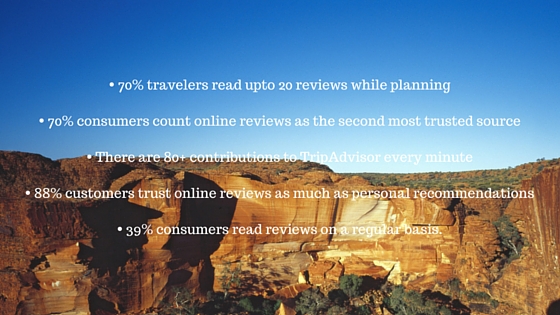
The above statistics make it clear how important reviews are. A couple of bad reviews could affect your business quite drastically. Remember this, and there won’t be any bad blood.
Keep all this in mind and improvise, go a step further and delight your customer. Now, I am sure you know all the tricks to get this right. But just to reinforce. Provide them everything that you promised. You know the magic mantra, right? ‘Under-promise, but over-deliver”. Address their grievances, provide them unique perks for booking with you, make sure that you remain in their mind long after they are gone. Do all this and more, and you have hit the jackpot!
After they are gone…
Don’t get complacent yet. You gave them a good customer experience. Now don’t you want them to come back to you again and again, or recommend you to their friends?
Delight them:
- A series of well-timed and well written emails. For example, the day after their departure, an email that says, ‘Thank you for visiting, do come again’.
- Two or three months down the line give a discount that offers them reason to book with you again.
- referral points for getting an acquaintance to book your property.
This will not only reinforce their good memories with you, down the line, you might just become the go to hotel when they travel to that particular city. Also, do remember, this is the day when experiences are posted on social media, be it good or bad. Although a bad review might negatively impact your business in more ways than you might think, a good post has equal ability to boost your reputation. So don’t give them a reason to publicly bust you, but rather give them more than one reason to sing your laurels.
So what are you waiting for. Make a checklist of things to do, and start ticking them off!







![Most Successful Online Marketing Tips Ever [Webinar Recording & FAQ] 16 Online Marketing Tips](https://www.leadsquared.com/wp-content/uploads/2021/11/Marketing-Like-Its-2016-Feature-Image-1-80x80.png)
